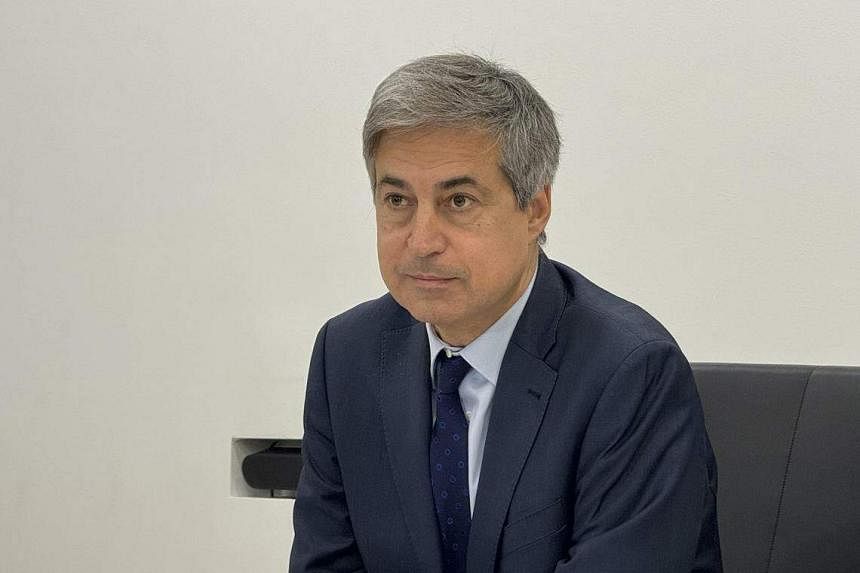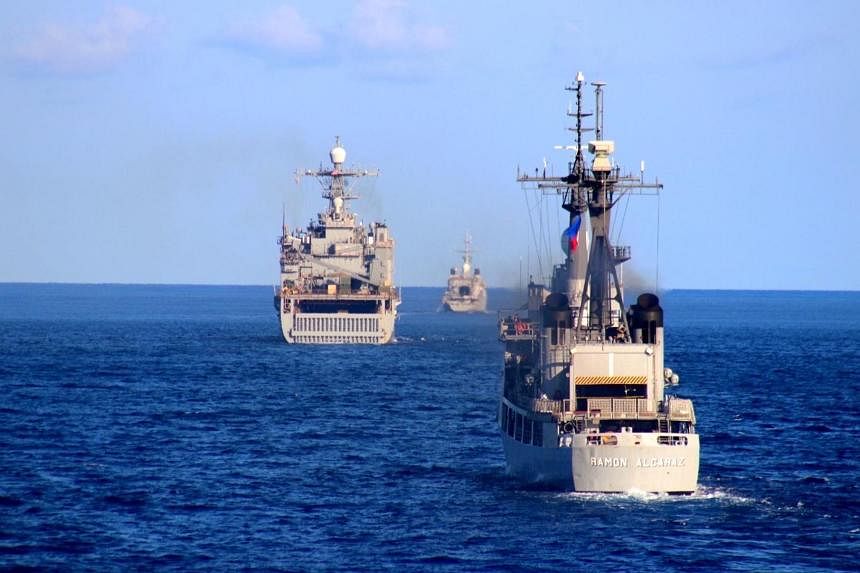MANILA – The French Navy has joined the annual war games between the Philippines and the US for the first time in 2024, in a move that analysts say demonstrates the solidarity among Washington and its allies in backing Manila’s claims over the disputed South China Sea.
France’s Floreal-class frigate FS Vendemiaire began its 10-day multilateral maritime exercise alongside the Philippines’ offshore patrol vessel BRP Ramon Alcaraz and landing dock BRP Davao del Sur, as well as the US’ landing ship dock USS Harpers Ferry on April 25.
The vessels from the three countries will be conducting various maritime drills within the eastern parts of the South China Sea that lie in the Philippines’ 200-nautical mile exclusive economic zone, where tensions have been boiling in the past months between Manila and Beijing.
This marks the first time the French have actively joined the Philippine-US war games, which kicked off on April 22 and will run until May 10. About 16,000 troops – 11,000 from the US and 5,000 from the Philippines – will be participating in the drills, along with hundreds of soldiers from France and Australia, a treaty ally of Manila like Washington.
France sent only military observers in previous Balikatan or “shoulder-to-shoulder” drills.
The French Ambassador to the Indo-Pacific, Mr Marc Abensour, said that FS Vendemiaire’s participation in the drills is not unique, as France deploys its naval assets in different parts of the region as well. But he said it does show the Philippines is a “key partner for France in the framework of our Indo-Pacific strategy”.
“We are fully committed to freedom of navigation, freedom of overflight, the respect of the law of the sea, the United Nations Convention on the Law of the Sea,” said Mr Abensour.
He was referring to the comprehensive international legal framework, upon which a 2016 international tribunal based its ruling rejecting China’s sweeping claim over almost the entirety of the South China Sea. Beijing has ignored this ruling and instead ramped up its military presence and activities in the disputed waters, including firing water cannon on Philippine ships sending supplies to troops stationed at a remote military outpost in the Spratly Islands.
Short of mentioning China, Mr Abensour said France is “opposed to any threat or any coercion which would be contrary to international law”.

The Philippine Navy can learn much from the open sea operational experience the French Navy brings to the Balikatan exercises, said maritime security expert Collin Koh of the S. Rajaratnam School of International Studies.
The FS Vendemiaire is a lightly armed vessel usually deployed to patrol far-flung territories, such as those in the Indian Ocean and the South Pacific.
“The key utility of French participation, however, is also symbolic – it demonstrates solidarity amongst US and allies in promoting rule of law in the maritime domain, when one considers the South China Sea situation to date,” said Dr Koh.
France is also able to demonstrate its intention to maintain a military presence in the Indo-Pacific and increase defence engagements with South-east Asian nations, he added.
The trilateral drills between Manila, Washington and Paris also tell China that the Philippines continues to find strong military allies to support its claims in its maritime dispute against Beijing, said maritime security expert Raymond Powell, who leads Stanford University’s Project Myoushu on the South China Sea. They could give “more leverage” to Philippine President Ferdinand Marcos Jr in dealing with China, added Mr Powell.
“China can’t simply treat the Philippines as a smaller neighbour that it can push around. It has to address the fact that the Philippines has more powerful friends – not just one big ally, but a network of allies,” he said.
In the face of what is seen as China’s rising aggression in the South China Sea, the Philippines under Mr Marcos has been beefing up its defence cooperation with allies like the US and France.
In December 2023, Manila and Paris signed a pact expressing both nations’ interest in strengthening their security cooperation, including talks for a possible visiting forces agreement.
Formal negotiations on this defence deal have yet to start, but Mr Abensour said Filipinos can expect more port calls from French vessels in the near future.
In an April 22 press briefing, China’s Central Military Commission vice-chairman Zhang Youxia called out the Balikatan exercises, saying the South China Sea should not be treated like an arena where nations can flex their “gunboat muscles”.
“Reality has shown that those who make deliberate provocations, stoke tensions, or support one side against another for selfish gains will ultimately only hurt themselves,” Mr Zhang added.


